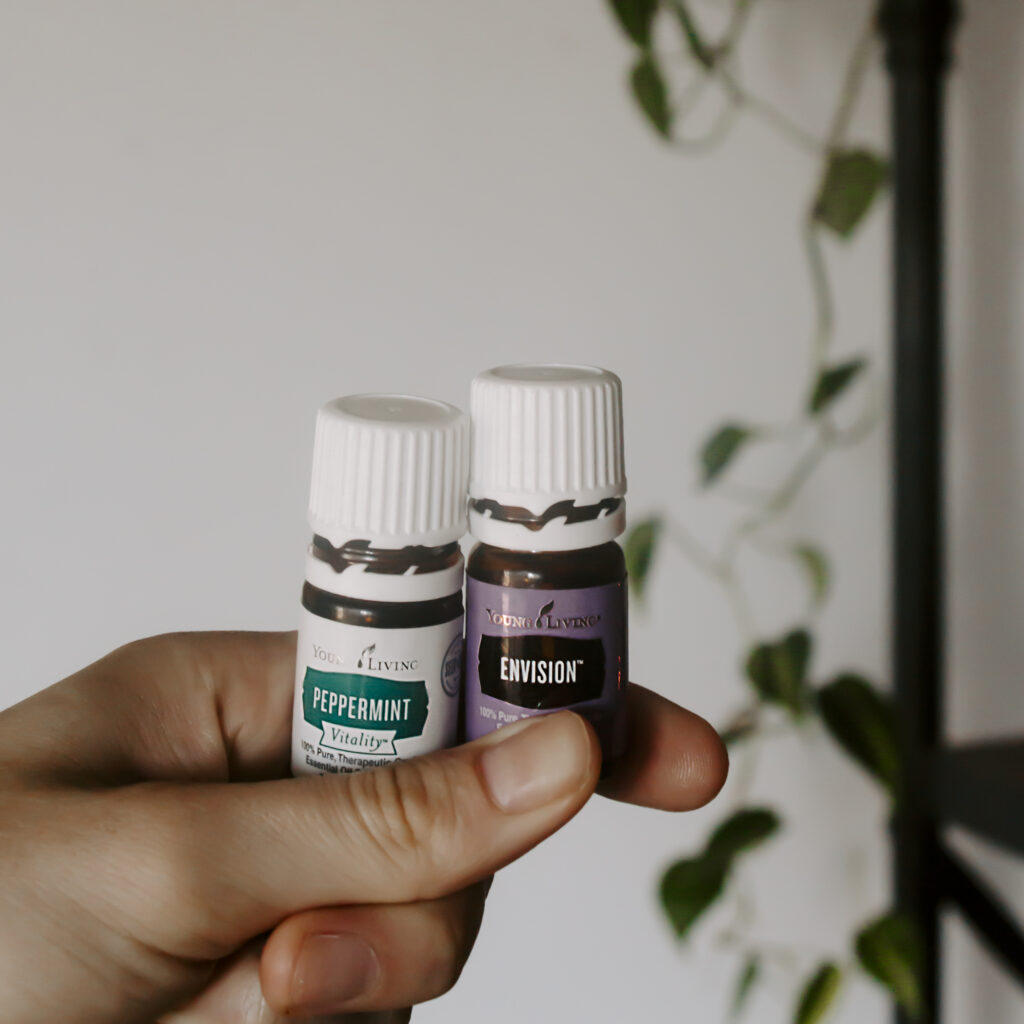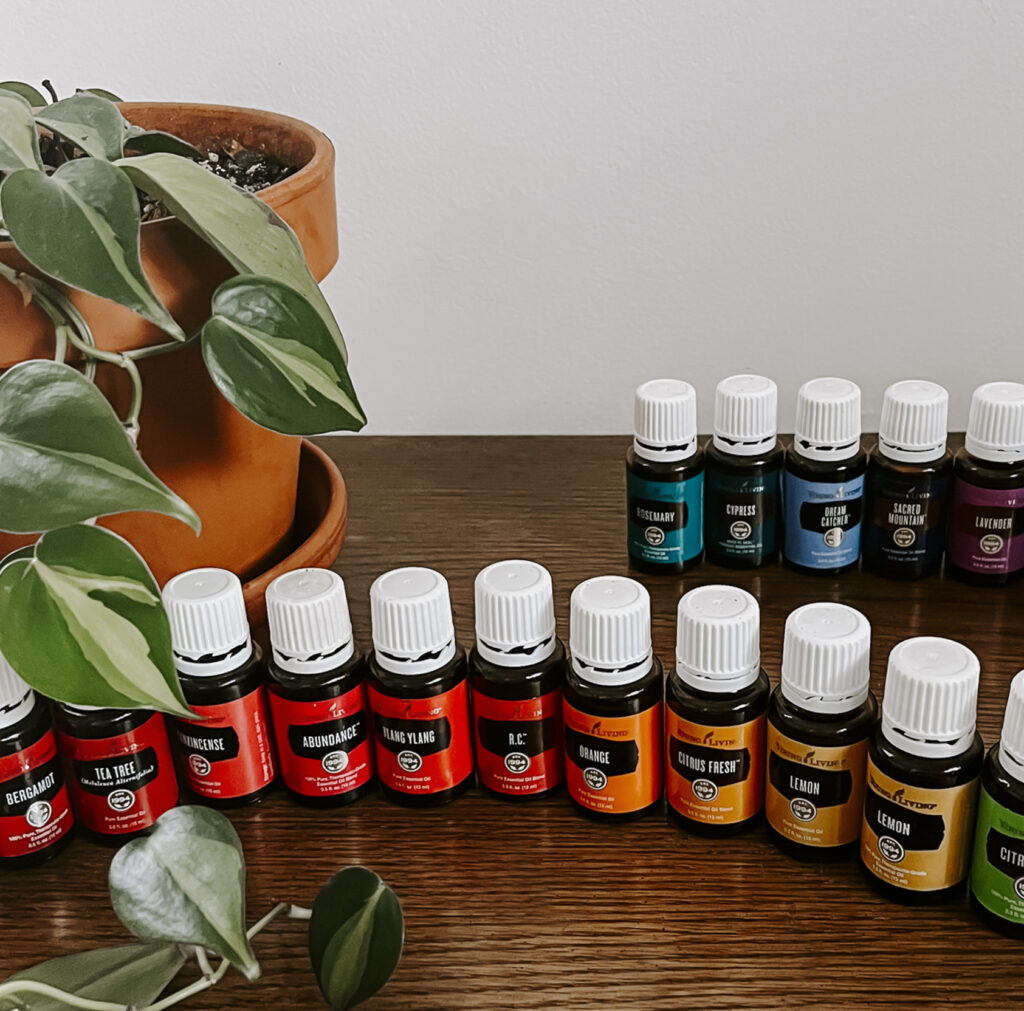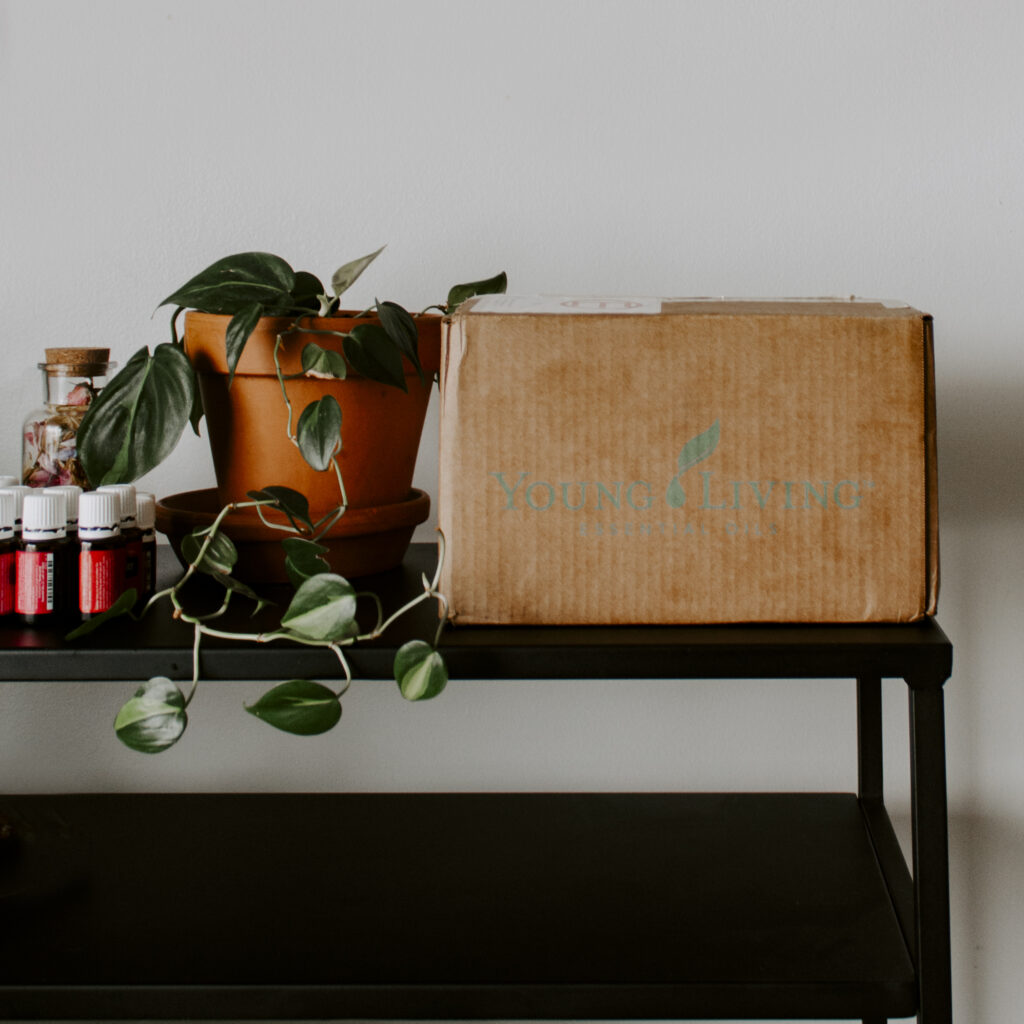
what are essential oils?
Essential oils are the life-blood of the plant (the most important part). What our blood is to us, is what essential oils do for plants. They carry nutrients and oxygen, while also effectively combating the damaging effects of toxins, impurities, and harmful substances.
Essential oils have been used by humans for thousands of years and are known to provide support for every system in the body. They’re used extensively for hormonal and emotional support. An oil can soothe a child to sleep at night or provide a calming effect after a stressful day at work. Oils an also be used as an alternative for toxic cleaning chemicals in our home.
how to use them
There are three main ways to use essential oils
aromatically – by inhaling from a diffuser or from the palms of your hands
topically – by applying to skin, either diluted in a carrier oil or undiluted
internally – by adding a drop to water or tea, taken in a veggie capsule, or used in cooking.**
**ingesting oils is a personal choice I made after doing my own research


why YL?
The essential oil industry is highly unregulated and not all essential oils are created equal. To create cheaper oils, companies cut corners and the result is less effective oils, that contain harmful synthetics. This is why transparency is important when choosing an essential oil company.
Creating essential oils is an art. Soil quality, pest control, harvesting times, distillation, proper testing, and more are all factors to be considered. A company’s inattention to these details can also result in less effective oils.
Young Living has set the industry standard for over 30 years, creating the highest quality essential oils on earth. They contain 100% essential oils with no fillers, fragrances, synthetics, or chemicals. The Seed to Seal standard is the reason I chose Young Living when researching essential oils.
“It costs us around $12,000 per acre to weed our Mona, Utah lavender fields by hand, using manual labor. Do you know how much “weeding” costs other companies? $60 per acre. Spraying cheap (and toxic) herbicides is faster and much cheaper” – Jared Turner (former CEO)
